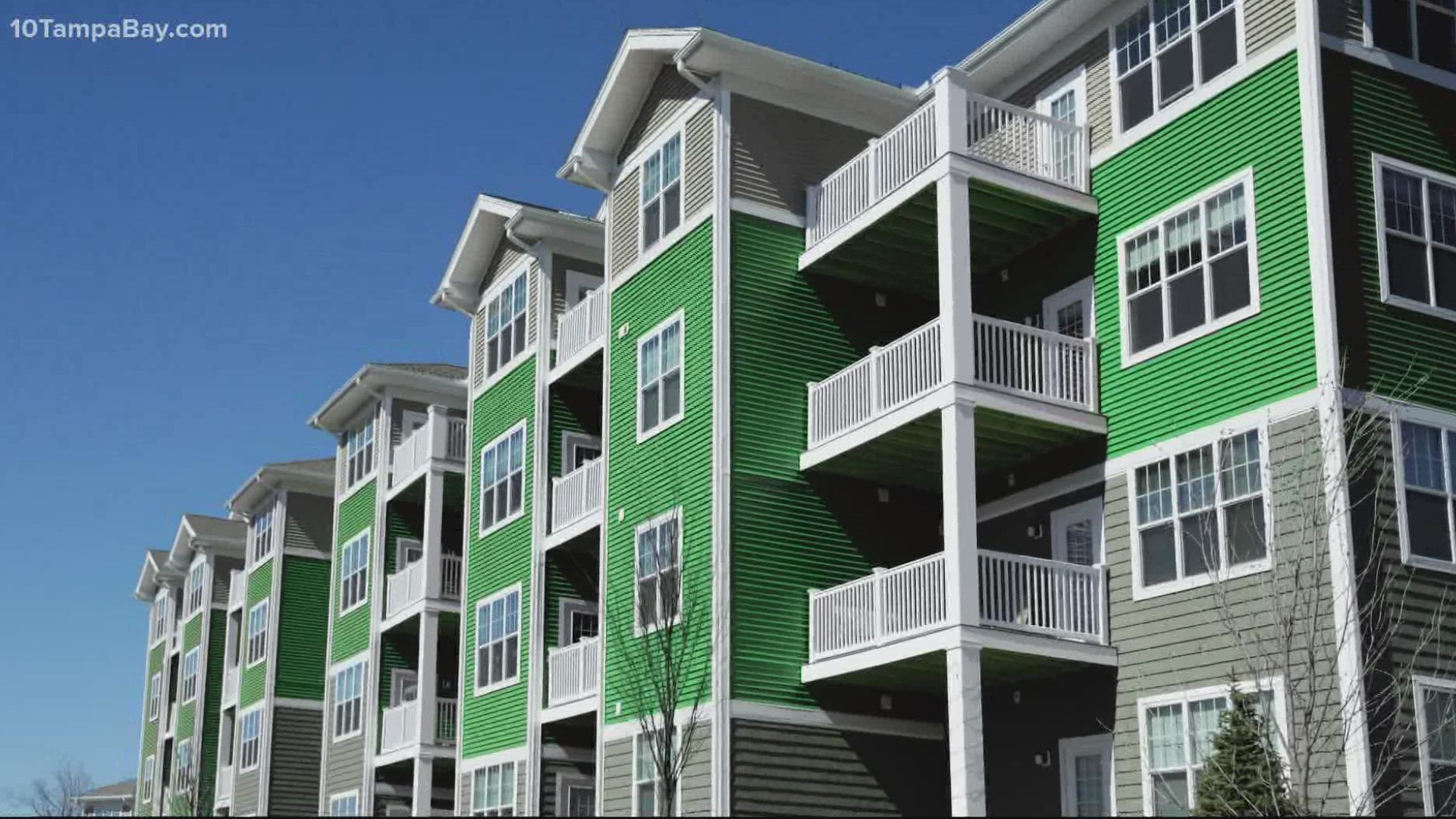ST. PETERSBURG, Fla. — As if trying to buy a home isn’t hard enough right now, renting is becoming out of reach for many, too.
By some estimates, Tampa Bay has seen the fastest rise in rent prices of any metro area in the country.
A VERIFY viewer in St. Petersburg said their landlord is trying to increase their rent by 15 percent – can they do that?
THE QUESTION
Is there a cap on how much a landlord can raise your rent here in Florida?
THE SOURCES
- Edward Murray, associate director of the Jorge M. Perez Metropolitan Center at Florida International University
- Leroy Moore, chief operating officer and vice president of the Tampa Housing Authority
- Florida statute
- Realtor.com
- National Apartment Association
THE ANSWER
No, there is no cap on how much a landlord can raise your rent in Florida. State law gives landlords wide-ranging authority over tenants and prohibits local governments from enacting rent stabilization policies.
WHAT WE FOUND
Rent prices are exploding across the country but the biggest jump has been in the Tampa Bay area.
Of the top 10 metro areas in the country, median rent prices are rising fastest here, according to data from Realtor.com. Rent prices in the Tampa-St.Petersburg-Clearwater metro are up 30.6 percent year over year, according to the site, with the median rent now hovering at around $1,760 per month.
Edward Murray, a leading expert on economic and housing market issues at Florida International University, says tenants have little power to do anything about it.
“Landlords can raise rents as high as they want on an annual basis,” Murray said, adding Florida is one of the friendliest states for landlords and developers.
Florida has no statewide rent control laws, Murray said, and local governments are barred from setting their own price controls. There is also no statewide law specifying how much notice a landlord should give their tenants prior to raising their rent.
“Renters can’t afford these big upticks in rents — $300 to $400 a year in some cases, so tenants have very few options.”
Legislative attempts at the state level to give local governments more power to control prices have failed, according to Murray. Florida is among 36 states that preempt local governments from adopting rent regulation laws, according to the National Apartment Association.
Leroy Moore with the Tampa Housing Authority said he’s seeing the impact everyday in ways he hasn’t before as rent prices increase faster than wages.
“I get emails every single day from people who five years ago would never think to email the housing authority to see if there’s an opportunity to rent housing,” Moore said. “These are people who have been priced out of the market... and they’re now part of the people who are waiting to get into the subsidized housing program.”
More than 8,000 people are on their current waitlist, he said, and it could take another five years to get all of them into housing.
“If you needed housing today you can’t even get on that waitlist because that waitlist has now been closed and will remain closed for several more years,” Moore said.
Moore believes offering incentives to developers to build more affordable housing might be more effective than imposing price controls on rent.
“I think we need to explore everything, every possible alternative to promote greater development of affordable housing,” he said.

